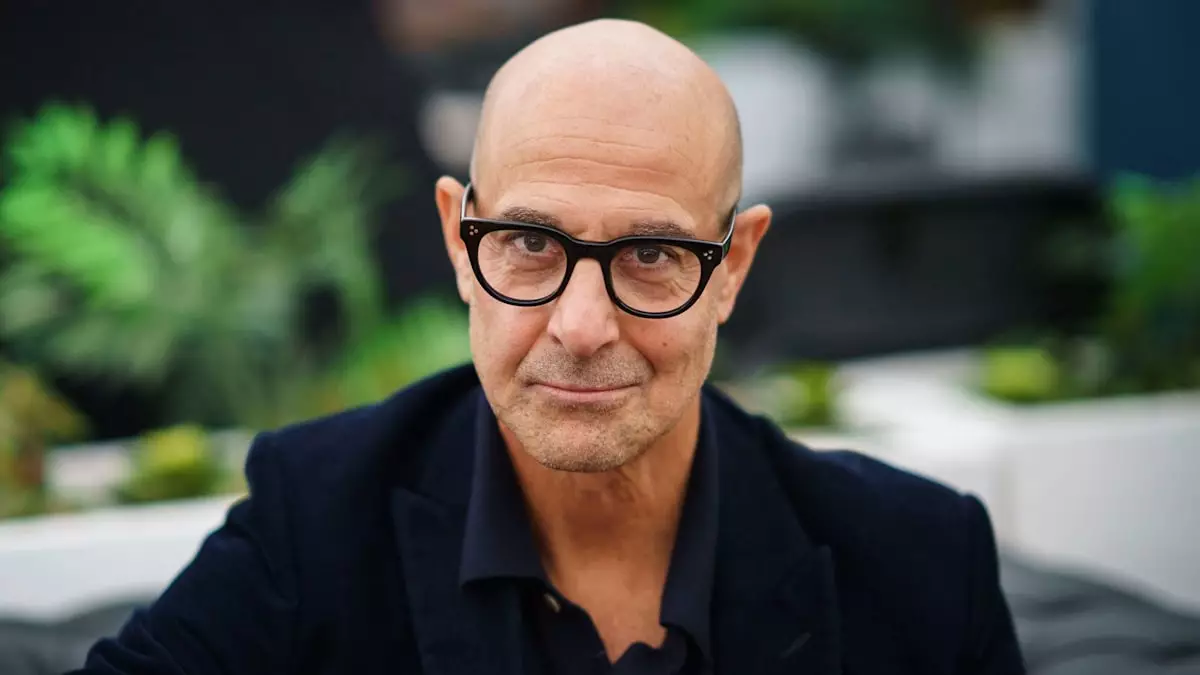Stanley Tucci, an actor revered for his versatility across multiple film genres, is regarded by many across the Atlantic as something of an honorary Englishman. His deep connection to the UK is not merely due to his acclaimed performances, but also because of his personal life, particularly his marriage to British writer and publisher Felicity Blunt, sister of actress Emily Blunt. This cross-cultural marriage has endeared Tucci to British audiences, enhancing his status and appeal in a land that already appreciates his range as an actor.
Beyond his cinematic accomplishments in well-loved films such as *The Devil Wears Prada* and *The Hunger Games*, Tucci’s warmth and charisma extend into the culinary realm. His passion for food is well documented on social media, further adding to his relatability. At 63 years old, and with a rich Italian heritage as part of his New York upbringing, Tucci embodies a fusion of cultures, which resonates deeply with fans around the globe. However, his journey has not been devoid of challenges.
In what could be termed a twist of fate, Tucci’s life took a serious turn when he faced an unexpected health scare. His battle with oral cancer, diagnosed in 2018, forced him into a public admission of vulnerability that contrasted starkly with the affable personas he portrayed on-screen. In interviews and through his memoir *Taste: My Life Through Food*, he unveiled the fragility of life and the emotional rollercoaster that ensued following his diagnosis—a moment that rendered him “stunned,” as he candidly described.
The actor’s struggles only deepen the layers of his character; his journey into the realm of health struggles infuses his culinary storytelling with poignancy. It began, quite grimly, with pain in his jaw leading him to seek further medical assistance. When the verdict was given, it threatened not just his health but the sheer joy that food brought him, a passion that had roots in his Italian heritage. The prospect of significant surgery, which could have robbed him of his sense of taste and smell, was a dreadful reality to face, especially as someone whose love for food and sharing meals is intrinsic to his very identity.
Fortunately, luck was on Tucci’s side as his prognosis turned less dire. The tumor was localized, allowing him to pursue targeted treatments rather than an invasive surgical procedure. Still, the toll of undergoing thirty-five days of high-dose radiation coupled with chemotherapy was immense. He vividly articulates the emotional and physical consequences of the ordeal, reflecting on weight loss and the distressing loss of taste.
Support Through Darkness
What shines through this challenging narrative is the strength of Tucci’s support network, especially his wife Felicity. Their bond, which began blossoming in the aftermath of his first wife’s untimely death due to cancer, became a cornerstone of his recovery. Tucci often credits his wife with being a relentless source of encouragement, pushing him toward treatment during times when his fear threatened to overwhelm him.
This relational dynamic underscores the importance of having a robust support system through life’s trials. In an industry often spotlighted for its glamour, Tucci reminds us of the often-overlooked human struggle behind the scenes. He openly discusses moments of profound vulnerability, articulating memories of weakness, nausea, and a disconnection from the joys of food that once brought him immense pleasure.
His introspective accounts also highlight how cancer alters perspectives, emphasizing its transformative power, not only physically but psychologically. Tucci’s recognition that this experience has aged him and changed his physical capabilities bears testament to the challenges faced by many who undergo similar battles.
Ultimately, Stanley Tucci’s journey is one that transcends Hollywood’s glitz and glimmer. He stands not just as a celebrated actor and food enthusiast but as a figure of resilience and vulnerability. His ability to weave together personal hardship with the joy and love associated with food creates an authentic narrative that resonates deeply with his audience.
As he continues to share his story both on-screen and off, the message remains powerful: the complexities of life, the sweetness of triumph, and the bitterness of struggle intertwine to forge a legacy that goes beyond performance. In an era where social media can often sculpt a false portrayal of perfection, Tucci’s candid admissions articulate an important reminder of our shared human experiences.

